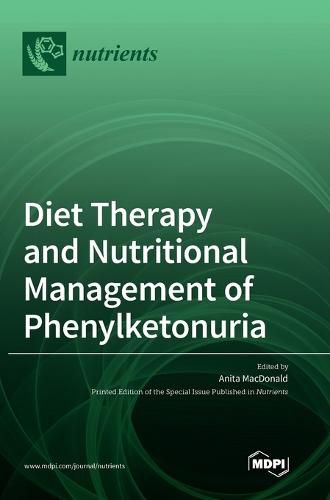Readings Newsletter
Become a Readings Member to make your shopping experience even easier.
Sign in or sign up for free!
You’re not far away from qualifying for FREE standard shipping within Australia
You’ve qualified for FREE standard shipping within Australia
The cart is loading…






This title is printed to order. This book may have been self-published. If so, we cannot guarantee the quality of the content. In the main most books will have gone through the editing process however some may not. We therefore suggest that you be aware of this before ordering this book. If in doubt check either the author or publisher’s details as we are unable to accept any returns unless they are faulty. Please contact us if you have any questions.
Phenylketonuria (PKU) is an established inherited amino acid disorder with a very traditional dietary therapy, but there is still more to learn and verify about its nutritional composition, application and overall effectiveness. Although in the 1950s, the first patient successfully treated with diet therapy patently established the role of a low phenylalanine protein substitute, in present times, it is still necessary to characterise the most effective source of artificial protein; defining its optimal amino acid profile; and identifying nutrient modulation that will improve the functionality of protein substitutes. It is also important to understand the impact of a life-long synthetic diet on gut microbiota, metabolomics and inflammatory status.
In early-treated patients with PKU, it is unclear if co-morbidities such as overweight, obesity, hypertension and diabetes are higher than in the general population and if these are associated with increased cardiovascular risk. It is also uncertain if overweight and obesity in PKU is related to early dietary practices, the nutritional composition of protein substitutes and special low-protein foods, impact of the dietary treatment on satiety, disordered eating patterns, non-adherence with the low phenylalanine diet and poor metabolic control, or if this is even a consequence of the disorder. In a generation of ageing patients, the impact of intermittent and suboptimal dietary adherence on nutritional status deserves systematic study.
$9.00 standard shipping within Australia
FREE standard shipping within Australia for orders over $100.00
Express & International shipping calculated at checkout
This title is printed to order. This book may have been self-published. If so, we cannot guarantee the quality of the content. In the main most books will have gone through the editing process however some may not. We therefore suggest that you be aware of this before ordering this book. If in doubt check either the author or publisher’s details as we are unable to accept any returns unless they are faulty. Please contact us if you have any questions.
Phenylketonuria (PKU) is an established inherited amino acid disorder with a very traditional dietary therapy, but there is still more to learn and verify about its nutritional composition, application and overall effectiveness. Although in the 1950s, the first patient successfully treated with diet therapy patently established the role of a low phenylalanine protein substitute, in present times, it is still necessary to characterise the most effective source of artificial protein; defining its optimal amino acid profile; and identifying nutrient modulation that will improve the functionality of protein substitutes. It is also important to understand the impact of a life-long synthetic diet on gut microbiota, metabolomics and inflammatory status.
In early-treated patients with PKU, it is unclear if co-morbidities such as overweight, obesity, hypertension and diabetes are higher than in the general population and if these are associated with increased cardiovascular risk. It is also uncertain if overweight and obesity in PKU is related to early dietary practices, the nutritional composition of protein substitutes and special low-protein foods, impact of the dietary treatment on satiety, disordered eating patterns, non-adherence with the low phenylalanine diet and poor metabolic control, or if this is even a consequence of the disorder. In a generation of ageing patients, the impact of intermittent and suboptimal dietary adherence on nutritional status deserves systematic study.